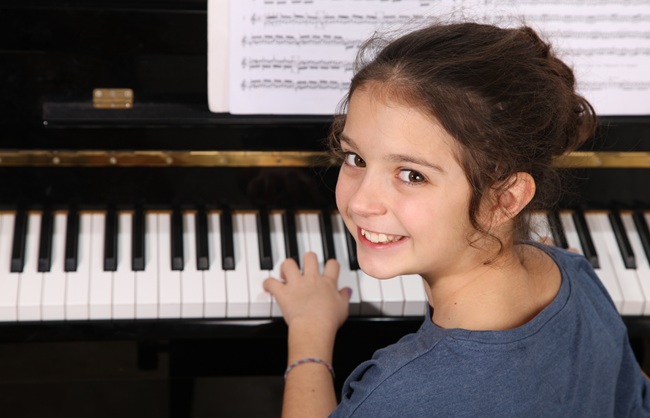Feb 12, 2026
Feb 12, 2026

Music is not just a form of entertainment, but a powerful tool for mental, intellectual, and emotional development. Specifically, during childhood, exposure to music significantly enhances brain functioning, memory, language, sensitivity, and creativity. Music, through its rhythms, melodies, and harmonies, plays a vital role in shaping a child’s mental and emotional state.
1. Contribution of Music to Brain Development:
Research has shown that listening to or learning music activates both hemispheres of the brain. This helps in balancing the development of logical reasoning and imagination.
Sound Recognition: Music makes children more sensitive to sounds, which enhances their linguistic abilities.
Memory Enhancement: Practices such as recognizing tunes, counting rhythms, etc., strengthen memory and concentration.
2. Emotional Balance and Self-Expression:
For children, music is a safe and creative outlet for understanding and expressing emotions.
Stress Relief: Music helps reduce anxiety, anger, and restlessness.
Confidence Building: Singing in front of an audience or practicing music boosts a child's confidence and enhances self-expression.
3. Social and Moral Development:
Teamwork and Discipline: Group singing or music classes teach children teamwork, tolerance, and discipline.
Sensitivity and Compassion: Classical, folk, and devotional music help instill compassion, love, and moral values in children.
4. Impact on Language and Mathematical Skills:
Language Development: Music and poetry help children quickly learn new languages, pronunciations, and word recognition.
Mathematical Understanding: Practicing rhythms and beats enhances children's ability to count, recognize sequences, and develop mathematical thinking.
5. Development of Creativity and Imagination:
Music significantly stimulates children's creative potential. When a child listens to music or creates their own tunes, they are not just playing with sounds but are giving shape to their thoughts and emotions. This process is crucial for their mental, emotional, and artistic development.
Composition: When children are allowed the freedom to create their own tunes, they begin composing music. This not only enhances their creativity but also gives them the confidence to express their thoughts through music.
Music-Inspired Art: When children listen to soothing or intense music, they begin to create artwork inspired by the sounds. This "sound-to-image transfer" strengthens their visual thinking and symbolic expression.
Improvement in Storytelling: Inspired by music’s rhythm and flow, children begin to present stories in a more vivid, emotional, and imaginative way. They incorporate rhythm into dialogues, adopt emotional tones, and present events with more creativity.
6. Importance of Music for Children with Special Needs:
Music therapy has proven to be extremely effective for children with developmental, cognitive, or communication challenges, such as:
Autism Spectrum Disorder (ASD): Children with autism face challenges in social interactions and emotional responses. Music provides them with a non-verbal, safe, and rhythmic way to communicate. Through clapping, instruments, or sounds, communication begins to take place.
ADHD (Attention Deficit Hyperactivity Disorder): Music helps children with ADHD focus better, improve self-control, and channel their energy into creative outlets. Practicing rhythm and melody enhances discipline and cognitive control.
Speech or Language Difficulties: For children struggling with speech or language, learning through music proves to be more effective. It helps in improving pronunciation, word recognition, and communication skills.
Emotional and Social Growth: Music-based group activities help children connect with peers, share experiences, develop empathy, and boost self-esteem.
Music in early childhood is not just a passive activity, but a powerful tool for holistic mental and personality development. It enhances the child's consciousness by making them more sensitive, creative, and balanced. Therefore, parents and educators must introduce children to music at an early age, whether it is classical, folk, or even the simple lullabies.
10-May-2025
More by : Deepika Tiwari